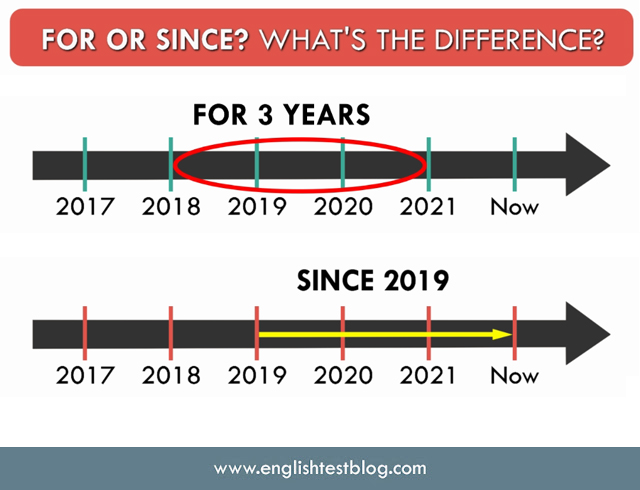For
We use the preposition for to talk about a period or duration of time, to say how long something lasts or continues. After for we say the period of time. (for five years, for a few days, for an hour). For can be used in the past, present, or future.
- He’s going away for a few days.
- I’ve worked here for five years.
- We’re going to stay in London for three days.
- Bake the cake for 40 minutes.
- They’ve lived here for 30 years.
- I have known him for five months.
- I’ve been waiting for 20 minutes.
When we use for with the past simple, the action started and ended in the past. When we use for with the present perfect, the action started in the past and continues in the present.
For with past simple
- She lived in Japan for three years.
- She has lived in Japan for three years.
Since
We use since to refer to a particular point in time in the past. It tells us when something started. We don’t use since with a period of time (since five years, since two weeks).
We normally use the present perfect before since to describe an action or situation that started in the past and continues in the present.
- We have lived here since 2006.
- I haven’t checked the engine oil since last Monday.
- I’ve been learning English since last summer.
We also use the past perfect before since. In this case, both the start time and the end time are in the past.
- I had lived in New York since my childhood.

Comments
Post a Comment